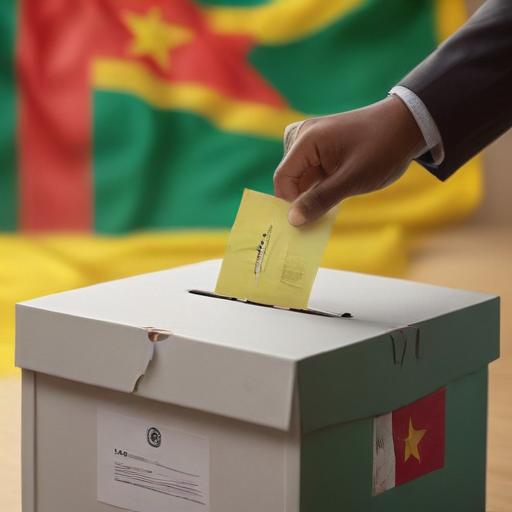Candidates are beginning to emerge as the October presidential election in Cameroon approaches. Official submissions for candidacy opened earlier this week, with significant momentum building after President Paul Biya submitted his nomination through proxy Jean Nkuete. Nkuete expressed confidence in the maturity of the Cameroonian electorate, emphasizing a clear distinction between past and current leadership.
In parallel, Cabral Libi, representing the PCRN, also announced his candidacy. Notably, Joshua Osih of the Social Democratic Front (SDF) has taken a prominent stand, filing his papers in Bamenda, a city face-to-face with challenges stemming from ongoing crises in the English-speaking regions. Osih underscored the importance of political identity rooted in the region during his candidacy announcement, highlighting the historical presence of the SDF in the area.
Momentum continues to build in Yaoundé as several candidates, including Minister Bello Bouba Maigari of the UNDP and former ministers Issa Tchiroma Bakary and Tomaïno Ndam Njoya of the UDC, also submitted their candidacies. Patricia Hermine Tomaïno Ndam Ndoya made a compelling case for women’s inclusion in the political landscape, asserting that women’s voices are vital for peace and sincerity in governance.
The most anticipated announcement was from Maurice Kamto, a prominent challenger to President Biya, who is expected to outline his campaign strategy in a press conference alongside ally Anicet Ekane.
The upcoming election is shaping up as a pivotal moment in Cameroon’s political landscape, providing an opportunity for significant dialogue and potential change. The participation of diverse candidates and voices, including an emphasis on women’s leadership, offers hope for a more inclusive political engagement. The active involvement of these candidates reflects a vibrant democracy where the electorate can engage with issues relevant to their lives.
